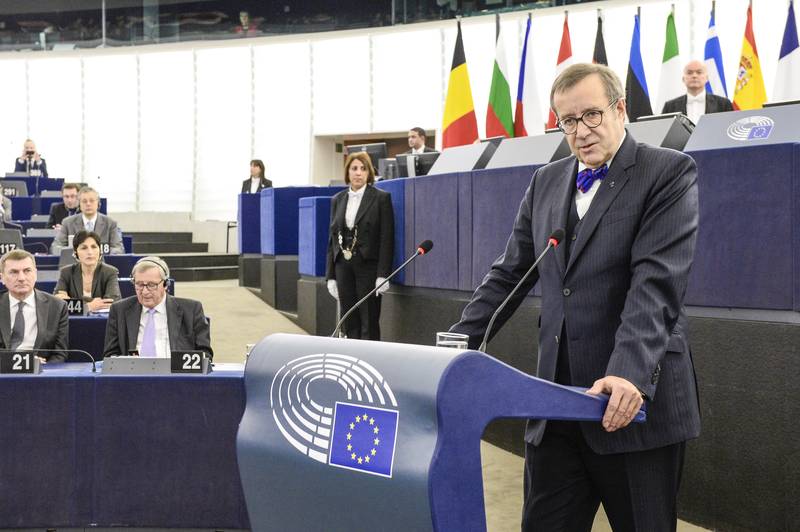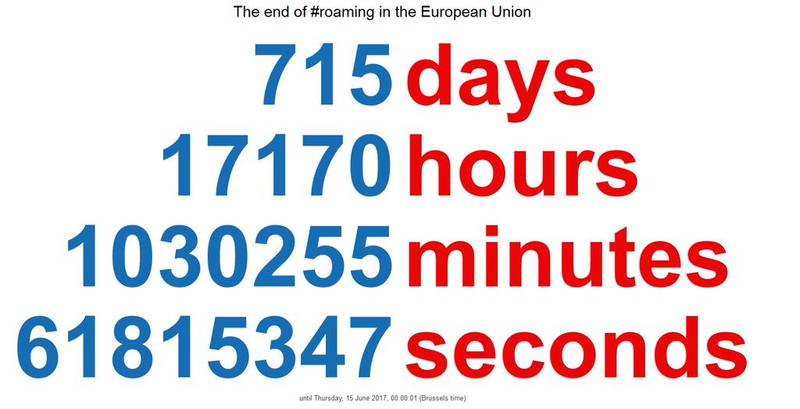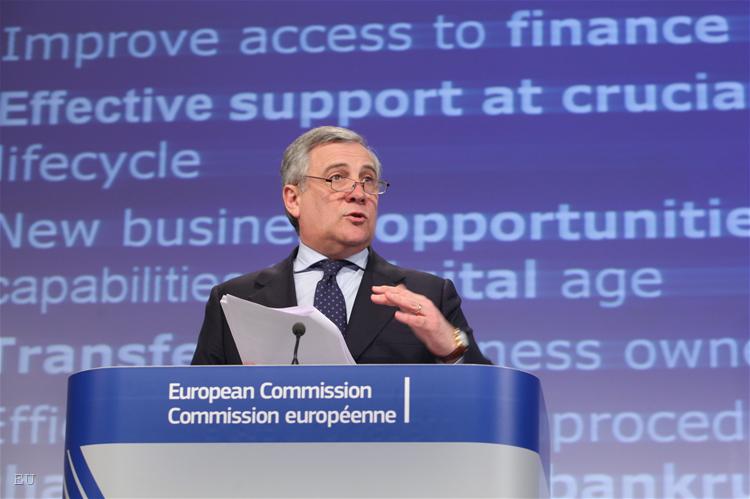The New Media - the Same Trust
Adelina Marini, January 6, 2012
In mid-November for the second time in Bulgaria a forum took place, dedicated to industry and innovation. The forum is organised by the business oriented magazine B2B. euinside had the pleasure to moderate the last panel of the two-day international forum, about smart TV and new media. The topic has been for quite some time on the agenda of many media outlets around the world and the most progressive among them, and those who do not want to lose their audience or even want to increase it manage to choose the right direction for their development. One of the very interesting speakers in this panel was Dessislava Boshnakova, ROI Communication. Interesting because she spoke in, I think, a leading perspective - the consumer and him being empowered by new technologies. However, no matter of the development of technologies, one principle remains unchanged - trust.
A full transcript of the statement:
Adelina Marini: Hello everyone, it may sound a little bit controversial to you, but in fact it is a good news that I am moderating the last panel. Firstly, because you have already got an idea about everything that was said so far and, second, because the most compact audience has remained, meaning that here have remained only those of us who are most interested in what we will be discussing now. So, smart TV and new  media. I am the editor in chief of euinside, a relatively new website, dealing with analyses and news about the developments in the European Union.
media. I am the editor in chief of euinside, a relatively new website, dealing with analyses and news about the developments in the European Union.
I will just briefly tell you why have we created this website. Actually, because there was Internet! Because, actually, Internet and new technology gave an opportunity to everyone to make whatever they wanted, especially if we had lost stimuli, if we had lost desire, if we had started feeling restrained in the traditional media - Internet has given us opportunity to be what we want, to be what we can. Besides, Internet has given us the opportunity with almost zero funding to indeed achieve a lot, to connect with everyone around the world, who is interested in us, or they to connect with us and this is precisely what turned out to be the motor of the big change in media - feedback.
If until recently traditional media - TV stations, radio stations, newspapers - created and imposed the standards of how media should look like, and if their production came out in the air or on paper and remained there, without us being able to read or see them again - they just went on air and whoever heard - OK, whoever understood - fine. Now, all of us leave trace on the Internet, all of us can read each other time and again, whenever we have spare time. If we had forgotten something we can write e-mails, to take part in our forums or chats and all this really makes us smarter. And this is precisely what we were talking about with Dessislava Boshnakova earlier today, from ROI Communication, that in fact information consumption is becoming increasingly a significant factor, which we have to deliberate upon and I suggest that she tell us what exactly does she have in mind.
 Dessislava Boshnakova: As a person whom you will have to wait to finish just before lunch, I promise to be very brief. I will not be able to fit into 140 symbols as in one tweet, which today is the normal way people to get the fastest information. I have no answer what will happen, I will just share with you some scattered thoughts, based upon my observations around me and what the students share, when 2 years ago a student told me: "I read the bTV news" and I said: "Come again?", because I did not understand what exactly he had told me. For me the news of a TV station are usually being watched. The question is that many people today don't have time to watch the news, they read them and read them in various places.
Dessislava Boshnakova: As a person whom you will have to wait to finish just before lunch, I promise to be very brief. I will not be able to fit into 140 symbols as in one tweet, which today is the normal way people to get the fastest information. I have no answer what will happen, I will just share with you some scattered thoughts, based upon my observations around me and what the students share, when 2 years ago a student told me: "I read the bTV news" and I said: "Come again?", because I did not understand what exactly he had told me. For me the news of a TV station are usually being watched. The question is that many people today don't have time to watch the news, they read them and read them in various places.
From that example I recalled that TV no longer is for many people what it is for me, for my parents and will never be for them what we are used to it to be. This is an expression of the euphoria of consumers, that resulted from the pick of TIME magazine of a person of the year in 2006. They chose "you" - me, you, everyone of us. And therefore, every consumer who perceived themselves as nominated and chosen for a person of the year outlines their vision about what a person of the year is to them. And this is one of the essential, in my view, things that will change not only what kind of information we do consume but who produces that information. Today, this could be me, without me having studied journalism, without me having a TV studio, or without me having anything more than a smart phone.
I don't even need to have a card for it, that I have to pay, because there are sufficient public spaces with Wi-Fi, where I can go and share my video content, my audio content, my text content. If I am tenacious enough in my desire to share this information, I can reach a huge lot of people and in some cases if what I have made is important to people, I can reach much more people than a TV can. This happens rarely up to the moment but is not impossible. Recently, as they say on TV "a leading producer of non-alcoholic beverages" launched a campaign called "206 degrees" - to find on 206 places around the world how people celebrate happiness and this campaign happened to be watched many times less than an amateur video of a 29-year old boy, who had decided to check in 209 countries how does the pack and the bottle of this brand non-alcoholic beverages look like, the favourite to everyone Coca Cola.
It appeared that in the online domain a large part of the people are thirsty for non-professional content, they are thirsty to hear the point of view of a person like themselves, because we have heard the politicians' point of view, the institutional one too, but for a very long time we, the small people, were silent, we had no access to speak, to write, to show. We could not make photos because it was very expensive. Even one photo was very expensive - with the film, the development, with the attention. Today we are all photographers, we all make video content - well, some, of course, do it much better. But whatever we do, we do not have the network of people, spread around the world, as the TV does. And somewhere between what we want to do and what the TV can do lies the TV of the future.
I don't know where they will meet exactly, but just a year ago when there was an incident with an air plane, the first information that CNN had was from Twitter by a survivor from the crash who had tweeted. CNN found him immediately, connected with him and he started to provide them with information. So, in many cases the ordinary consumer, as we call them, is becoming not just a consumer of information but a generator of content, but a different content, deprived from the corporate culture, deprived from taking into account some things, because I, as a person, have the liberty to say everything, without insulting other people, but I'm not obliged to grant a right of responding to an affected side, because this is my personal opinion.
Information now is too much. I am frequently told: "But you know everything!" No, I know nothing, I am just subscribed on Twitter to 7-8 people who follow all the news on 7-8 topics that I'm interested in. And when I see what they had shared with the other people I can easily reach the information that I need, in other words I use my friends, whom I trust in a certain area, as a filter so that I can find myself in this entire sea of information. And it is no accident that these people, who manage to filter and have gained the trust of a sufficient number of other people, in a moment they could prove more influential than, let's say, print media, whose circulation everywhere in the world is slightly dropping, and in other parts of the world is dropping even more.
The problem is, I deliberately mentioned print media because they are those who are most difficult to adapt to speed. Take a morning paper, printed last night and you were able to buy it last night, and see what news there are in it! These are not the news your friends are sharing this morning on Facebook. These are not even the news that you are hearing in the morning TV talk shows. These is news that you have already discussed everything about with your friends and from this perspective some wise, not to say smart, newspapers have changed their philosophy about what they should publish and you will not see there a striving to compete with the speed of Internet to deliver the news first.
But on the basis of the entire capacity of people they have - smart, who are used to analyse and filter the news - on their pages in the morning you can read analyses and what is the common thing between you and what you have discussed yesterday with your friends. So, I believe print media have a future, only if they want it, in order to find their place. What I was actually talking about is that, after all, we are all becoming a source of information. Even what we share with our friends in the social media. During the break a mother called me and said: "I will come tomorrow at your event". And I said: "No, no, I'm doing nothing, I'm just taking my kid to a very nice place" and I have shared this so that other people can come.
This piece of information I won't find in the traditional TV, the way we know it, in the traditional radio or the traditional newspaper. They will find it with their friends, because they trust them. In other words, a friend of mine went to a place, she liked it, so I will like it too. The factor trust among people is becoming much more essential than the factor trust in the institution we have. Whom can I trust? Whom had not lied to me. And here we are no longer talking about whether I am a TV or a blogger, or just an active Facebook consumer. Trust is gained via truth and via turning words into deeds. No matter what the institution is that does that - be it an ordinary blogger or a Twitter account that we don't know who stands behind it.
If he or she had proved to us for a long time that we can trust them, we can continue to trust. A not very pretty piece of statistics - a poll that I came across just before I came here: 55% of the Americans think that in 10 years the traditional media, the way we know them, will disappear. I laughed a bit and said that maybe this is not a result of the quick development of technologies but that a big part of the people who are used to live with traditional media will give way to a young generation that is not used to traditional media. In other words, the news at 7 are something to which young people are not attached at all. For them the news come immediately. This means that the news at 7 will be needed by people, who cannot live without them. Even I learnt not to watch the news at a particular hour - they are uploaded online and if I'm interested in something I watch them, when I have spare time.
From this perspective, the physical bond between me and the traditional media no longer exists - I can listen to the radio whenever I want, to read the newspaper on my computer, TV shows I can watch on my phone and even in a 3D format, if that's available. So, what lies ahead, I think no one actually knows. What technologies we will be provided with so that we can become even more creative in generating content we also don't know, and maybe this is good, because if we knew what will happen to us in 12-15 years it wouldn't have been interesting to live. What I can tell you for sure is that whatever happens in this world we will continue to need people to manage the tons and gigabytes of information that is overflowing. And whoever proves that can to this well will win the trust of consumers and they will follow him or her, no matter if this is a blogger, an ordinary person with an account on Facebook or a TV with a worldwide coverage. Thank you.
 Toomas Hendrik Ilves | © European Parliament
Toomas Hendrik Ilves | © European Parliament | © European Commission
| © European Commission | © EU
| © EU